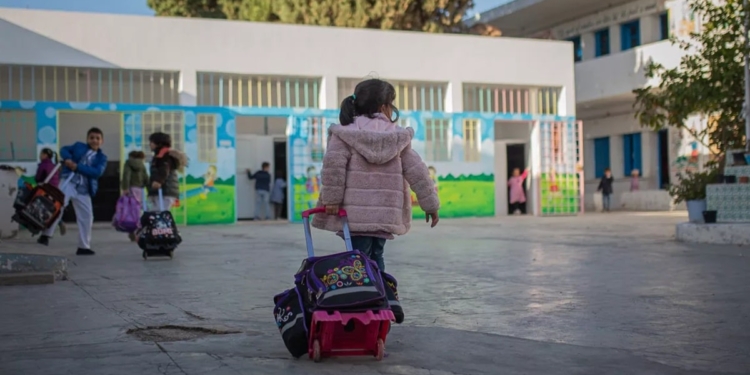- The Ministry of Education maps out priorities for the next decade
The Minister of Education, Noureddine Nouri, presented this Tuesday, October 14, 2025, during a plenary session held in the presence of the President of the National Council of Regions and Districts Imed Derbali, the broad outlines of the ministry’s 2026-2030 strategic plan.
This document, now finalized, is intended to be a global national reference aimed at redefining the future of Tunisian schools through a scientific, participatory and equitable approach.
Nouri stressed that this plan is part of a context of structural challenges: deterioration in the quality of education, persistent regional disparities and increasing dropout rates. The stated objective is to restore the central role of schools in the training of future generations while consolidating equal opportunities.
Three objectives and four pillars for a renewed school
The 2026-2030 strategic plan is based on three main objectives:
- Improve the quality of education and innovation,
- Strengthen equity and equal opportunities,
- Optimize the governance and performance of educational administration.
These ambitions are based on four essential pillars: safe and attractive establishments, renewed programs, qualified teachers and modernized administrative management.
The ministry also received 419 educational projects proposed by regional councils, ranging from constructions and extensions to the rehabilitation of existing establishments.
An envelope of 400 MD to modernize educational establishments
During the same session, the minister announced the mobilization of an envelope of 400 million dinars (MD) intended for the rehabilitation of educational establishments and the improvement of their infrastructure.
This envelope will be used to create 17 new establishments (8 primary schools, 7 middle schools and 1 high school), the rehabilitation of 325 schools, the construction of 106 fences and the installation of 71 prefabricated classrooms.
The ministry is also continuing the digitalization of the educational network:
- installation of 500 surveillance systems to strengthen security,
- provision of mobile computer laboratories (2,260 laboratories, 29,380 computers and 4,500 digital projectors),
- purchase of 85,000 double tables and 1,500 new educational laboratories for primary schools.
The minister also mentioned the regularization of 24,000 substitute teachers and school staff, as part of the presidential decision aimed at putting an end to job insecurity.
With 2.6 million students spread across 6,164 establishments and supervised by nearly 160,000 teachers, the 2025-2026 school year took place “in good conditions”, according to Noureddine Nouri.
He sees this as a sign of a return of confidence in public schools and a change of approach in the state’s educational policy, now focused on modernization, security and social justice.








